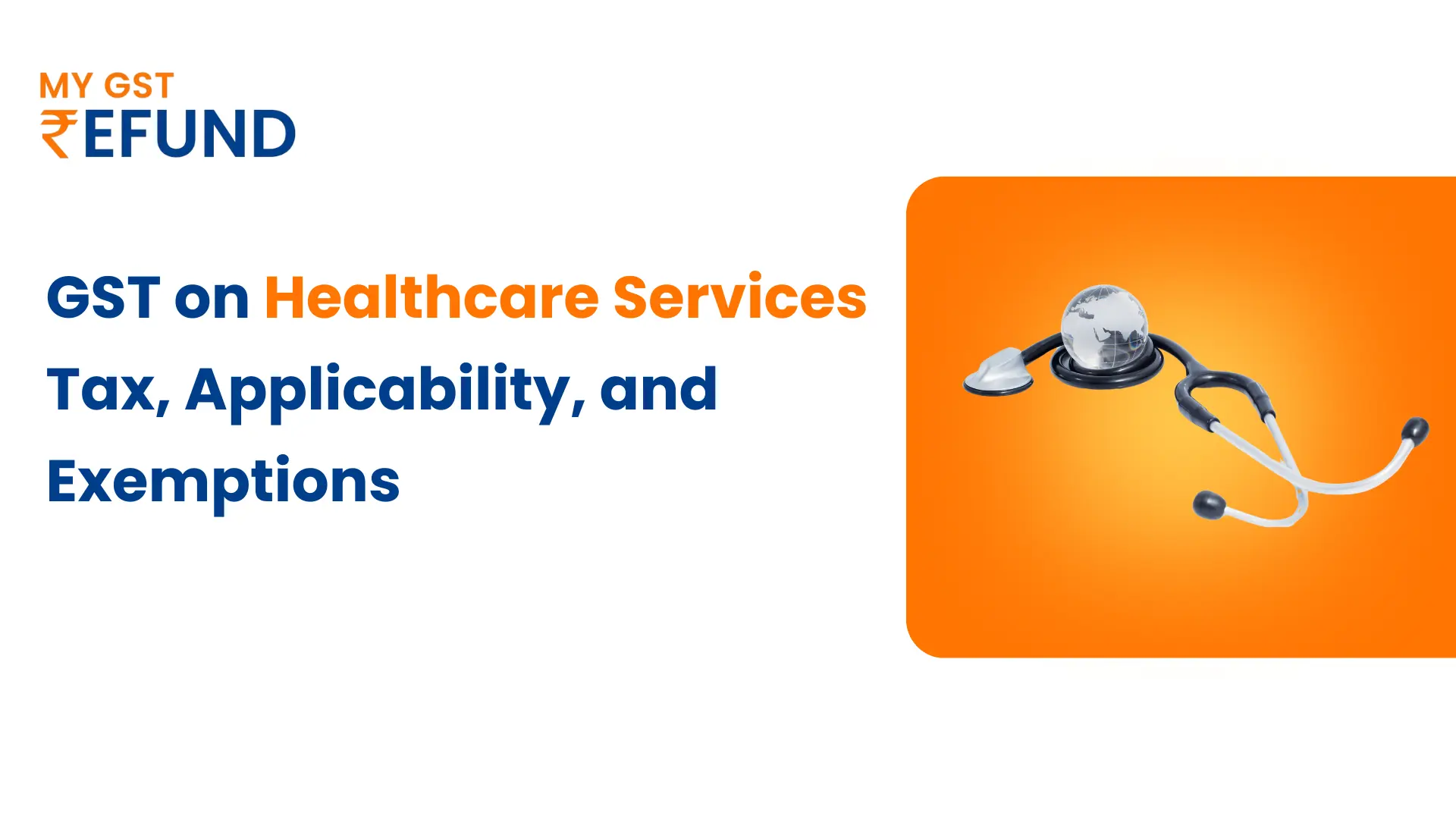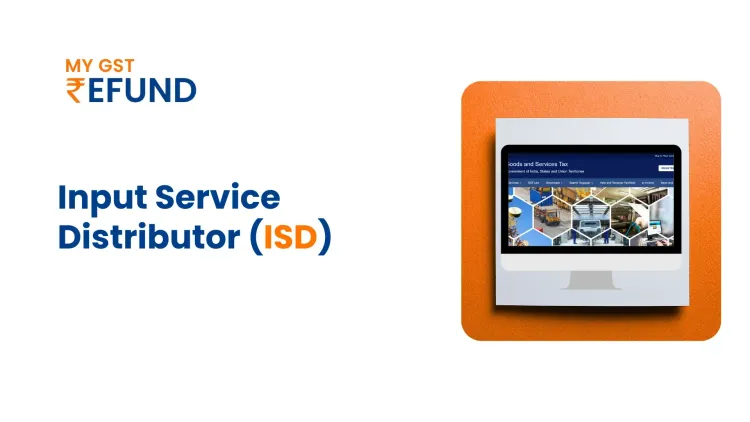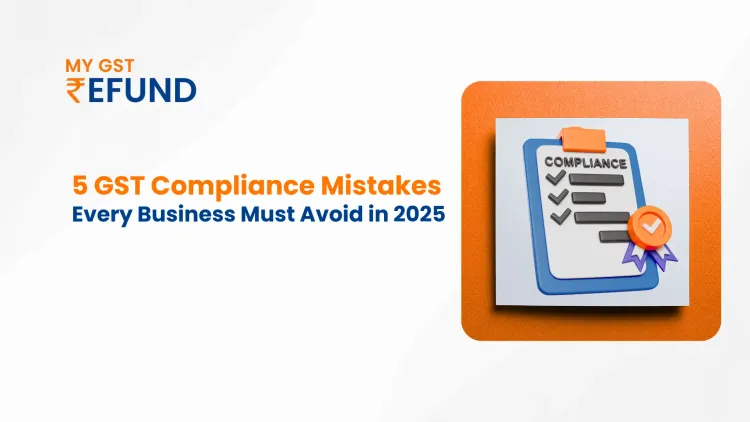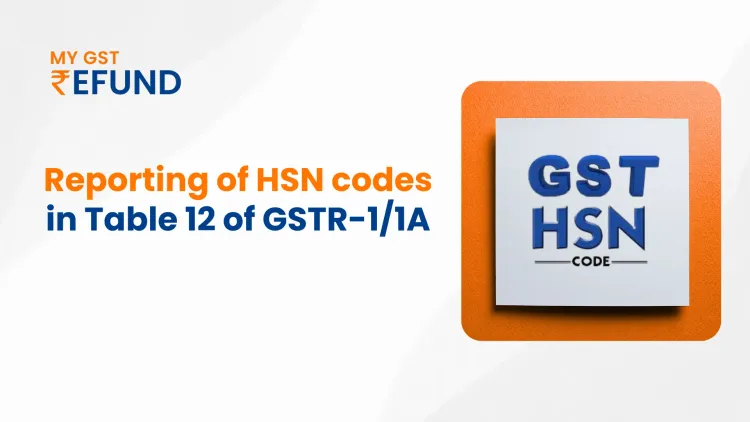GST on Healthcare Services
India's Goods and Services Tax (GST), introduced in July 2017, has long been a subject of great discussion in the country, especially with regard to the GST on Healthcare Services. Healthcare is essential to public well-being, and the sector’s tax framework is frequently complicated. Healthcare services are an integral part of society, and the treatment of them under the GST in Healthcare needs to be explained in clear and understandable language. This article delves into the nuts and bolts of GST for the healthcare service sector, including rates, applicability and exemptions, and practical implications for the sector.
Understanding GST on Healthcare Services
It is a basic area that directly affects citizens' health and also justice of life. These services include medical treatments, diagnostic services, hospital stays, and specialized, often provided by hospitals, clinics, and other medical establishments.
A consensus was reached during the implementation of GST that medical services should be exempted from tax so that healthcare stays free and affordable to all. In fact, GST on Healthcare Services was designed to limit the burden on patients so that service providers remain financially viable. Yet the implementation isn't as simple as it seems, and there are a few things you need to know.
The GST Tax Rates on Healthcare Services
Healthcare services are exempt (with very few exceptions) under the GST framework. For the most part, tax-exempt GST is levied if the Health Care service is rendered by a clinical establishment, hospital, nursing home or medical practitioner. In other words, patients do not need to pay GST while receiving essential healthcare such as surgery, diagnosis and consultation.
But there are exceptions. In case the healthcare services are being provided by a non-clinical establishment and not by medical professionals, for instance, by beauty clinics that offer aesthetic services, they may attract GST. Likewise, GST may apply to services that are provided irrespective of relation here to the treatment of an illness or injury (such as to a wellness center).
Applicability of GST on Healthcare Services
Nature of the Service and Provider of the Service are Determinant for Applicability of GST for Healthcare Services. Here are a few key points to consider:
Clinical Establishments: Exemption from GST is generally considered for healthcare services by a clinical establishment, i.e. hospitals and nursing homes. It includes inpatient and outpatient services that are part of medical treatment (including diagnostic care and surgery).
Medical Practitioners: Also excluded from GST are the services provided by individual medical practitioners (doctors and specialists) when the services are connected with medical treatment and not wellness or beauty treatment.
Diagnostic and Pathological Labs: Diagnostic labs provide medical testing services, which are generally exempt from GST. But if the tests aren’t straightforwardly linked to treatment for medical reasons, GST may apply.
Cosmetic and Beauty Procedures: However, the GST in Healthcare is treated differently to cosmetic or aesthetic services. If you are getting yourself treated with botox injections, plastic surgeries or any other beauty procedure by a pimp or any other non-medical practitioner, then such service is treated as a non-essential service and may attract GST.
Ambulance Services: When ambulance services are used to transport patients, ambulance services are exempt from GST. But there is a catch — if the services are not utilized for medical purposes, GST may be levied on them.
Recommended: GST Refund Process, Claim and Time Limit
Exemptions and Special Cases in GST for Healthcare Services
There are several exemptions and special cases under the GST for Health Care Services that are worth understanding:
Preventive Healthcare: Generally, GST will not be applicable if provided by registered healthcare providers for such preventive services as immunization, vaccination, and health checkups.
Non-Medical Services: Earlier, we had mentioned that not all services qualify as medical care; for example, wellness services, massage therapies, and beauty treatments can attract GST.
Health Insurance Premiums: GST on Healthcare Services is incident on medical treatments, but the premiums of health insurance policies are also being taxed. On the whole, health insurance premiums are normally subject to an 18% GST rate, leading to higher costs of healthcare.
Ayurveda, Yoga, and Naturopathy: If Ayurveda is provided for therapeutic treatment, Ayurveda and naturopathy are exempt from GST as traditional healthcare services. However, wellness and spa services in these domains are also not affected by the exemption.
Pharmaceutical Products: Similarly, GST is billed on medicinal products and pharmaceuticals under differing tax heads. Again, most essential medicines are taxed at a reduced rate of five percent, but there could be more taxes on luxury or non-essential items.
Challenges and Issues in GST on Healthcare Services
The GST for Health Care Services may have many exemptions, but the system is not fully without challenges. The ambiguity surrounding the tax treatment of many healthcare-related services is one of the major challenges. However, many healthcare providers are not sure if some particular service is exempt or can attract GST.
Also, goods that should not be taxed at all are taxed on certain items related to health care. In fact, GST is levied by some of the service providers for the sale of medical equipment and devices, which adds to healthcare provider’s cost burden and, as a result, that of patients.

Impact of GST on Healthcare Providers
The introduction of GST has mixed effects on healthcare providers. In the first place, this has reduced the cascading effect of taxes and, on the other hand, has simplified the taxation system. However, others creating exemptions and complying with the new tax laws are still a challenge for many healthcare providers to understand.
Also, there are operational costs associated with understanding and implementing GST compliance. In bigger hospitals and healthcare chains, this (complexity) is easier to manage because the tax teams are dedicated, but smaller clinics and individual practitioners may have difficulty in managing this new tax framework.
In a few cases, healthcare providers have observed that the cost of medical services has also been rising because of indirect taxes levied on medical supplies, equipment, and services that are not directly linked to medical care.
Read Also: How to Report fake GST bill
How GST Affects Patients
The biggest issue for patients with a GST on Healthcare Services is if their medical bills will increase. Thankfully, though, there are exemptions for the most basic of essential healthcare services like surgeries, medical treatments, and consultations. It means that there are no extra taxes for patients who must receive the necessary medical care.
However, the tax on medical equipment, supplies and health insurance premiums may still affect patients. Indirectly, it increases the overall healthcare cost because of the long-term care or that person needs health insurance coverage.
Several of the healthcare providers and businesses in the sector can manage GST more easily by using various tools, such as a GSTIN Status Validator. The purpose of this tool is to check the GST registration status and to check the GST compliance. The Refund Calculator can also be used by healthcare providers to track their eligible refunds since so many healthcare providers have paid GST on services or products that should be exempt.
Conclusion
GST on Health Services is for making our healthcare affordable and available for the common man, while charging taxes only on ancillary or luxury services. Medical practitioners and patients should acquaint themselves with the applicable rules in order to prevent confusion and to conform to the tax system.
FAQs on GST for Healthcare Services
At what GST rate are the healthcare services charged?
Generally, healthcare services offered by such established clinical foundations and clinicians are exempt from GST. However, one can still get GST on things like cosmetic surgeries or wellness treatments.
Do diagnostic tests fall under taxation under GST?
GST is exempted from diagnostic tests involved in medical treatment. While tests that are not part of medical treatment — such as wellness or screening — are GST applicable.
Does GST apply to health insurance premiums?
Sure, the GST rate on health insurance premiums is 18% which means more on your healthcare bill.
Are Ayurvedic treatments subject to GST?
Most of the Ayurvedic treatments which are therapeutic in nature are exempted from GST. But not all the non-therapeutic services in Ayurveda may attract GST.
What impact does GST have on healthcare providers?
Healthcare providers will incur high costs from operational taxation if GST compliance and taxation of medical supplies take place. Now, the exemption on medical services helps to lessen the balance on the direct tax burden of the patient.
Related Posts








